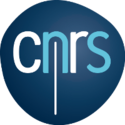Grid5000:Home: Difference between revisions
(Fix news link) |
(Update backbone map) |
||
| Line 3: | Line 3: | ||
|- valign="top" | |- valign="top" | ||
|bgcolor="#f5fff5" style="border:1px solid #cccccc;padding:1em;padding-top:0.5em;"| | |bgcolor="#f5fff5" style="border:1px solid #cccccc;padding:1em;padding-top:0.5em;"| | ||
[[Image: | [[Image:g5k-backbone.png|thumbnail|260px|right|Grid'5000]] | ||
'''Grid'5000 is a large-scale and flexible testbed for experiment-driven research in all areas of computer science, with a focus on parallel and distributed computing including Cloud, HPC and Big Data and AI.''' | '''Grid'5000 is a large-scale and flexible testbed for experiment-driven research in all areas of computer science, with a focus on parallel and distributed computing including Cloud, HPC and Big Data and AI.''' | ||
Revision as of 13:59, 30 November 2022
|
Grid'5000 is a large-scale and flexible testbed for experiment-driven research in all areas of computer science, with a focus on parallel and distributed computing including Cloud, HPC and Big Data and AI. Key features:
Grid'5000 is merging with FIT to build the SILECS Infrastructure for Large-scale Experimental Computer Science. Read an Introduction to SILECS (April 2018)
Older documents:
|
Random pick of publications
Five random publications that benefited from Grid'5000 (at least 2932 overall):
- Albert d'Aviau de Piolant, Hayfa Tayeb, Bérenger Bramas, Mathieu Faverge, Abdou Guermouche, et al.. Improving energy efficiency of HPC applications using unbalanced GPU power capping. HCW (Ipdps workshop), Jun 2025, Milan (Italie), Italy. hal-04883872v2 view on HAL pdf
- Houssam Elbouanani, Chadi Barakat, Walid Dabbous, Thierry Turletti. Fidelity-aware Large-scale Distributed Network Emulation. Computer Networks, 2024, 10.1016/j.comnet.2024.110531. hal-04591699 view on HAL pdf
- Tom Hubrecht, Claude-Pierre Jeannerod, Paul Zimmermann, Laurence Rideau, Laurent Théry. Towards a correctly-rounded and fast power function in binary64 arithmetic. 2024. hal-04159652v2 view on HAL pdf
- Cédric Prigent, Alexandru Costan, Gabriel Antoniu, Loïc Cudennec. Enabling Federated Learning across the Computing Continuum: Systems, Challenges and Future Directions. Future Generation Computer Systems, 2024, 160, pp.767-783. 10.1016/j.future.2024.06.043. hal-04659211 view on HAL pdf
- Can Cui, Imran Ahamad Sheikh, Mostafa Sadeghi, Emmanuel Vincent. Improving Speaker Assignment in Speaker-Attributed ASR for Real Meeting Applications. The Speaker and Language Recognition Workshop Odyssey 2024, Jun 2024, Quebec, Canada. hal-04495886v2 view on HAL pdf
Latest news
Extension:RSS -- Error: "https://www.grid5000.fr/w?title=News&action=feed&feed=atom" is not in the list of allowed feeds. The allowed feeds are as follows: https://www.grid5000.fr/status/upcoming.atom, https://www.grid5000.fr/mediawiki/index.php?title=News&action=feed&feed=rss, https://www.grid5000.fr/mediawiki/index.php?title=News&action=feed&feed=atom and https://www.grid5000.fr/rss/G5KNews.php.
Grid'5000 sites
Current funding
As from June 2008, Inria is the main contributor to Grid'5000 funding.
INRIA |
CNRS |
UniversitiesUniversité Grenoble Alpes, Grenoble INP |
Regional councilsAquitaine |


